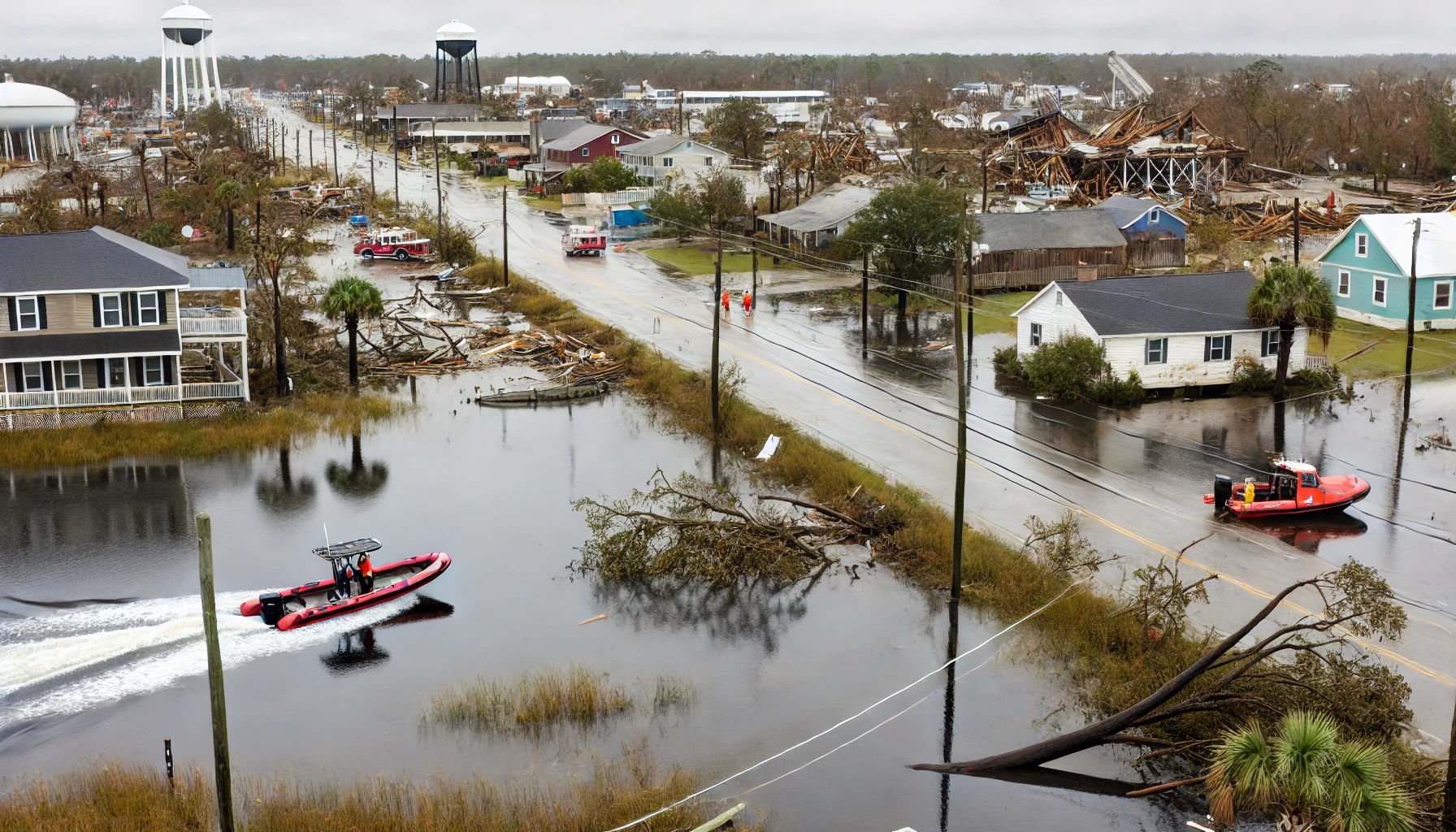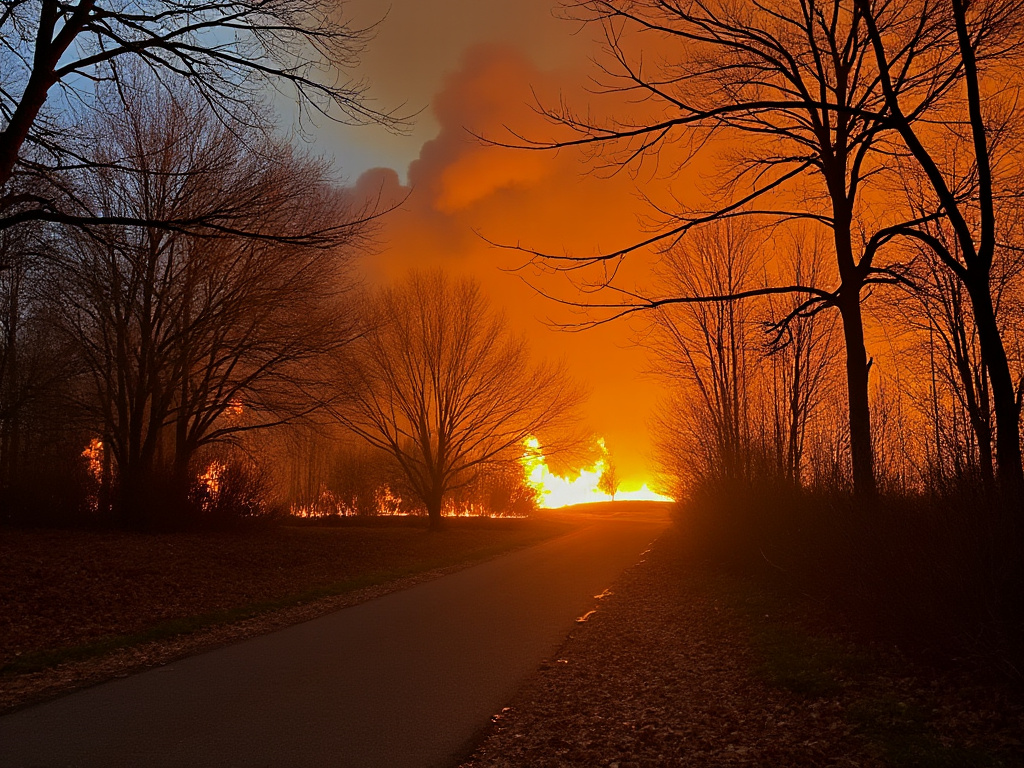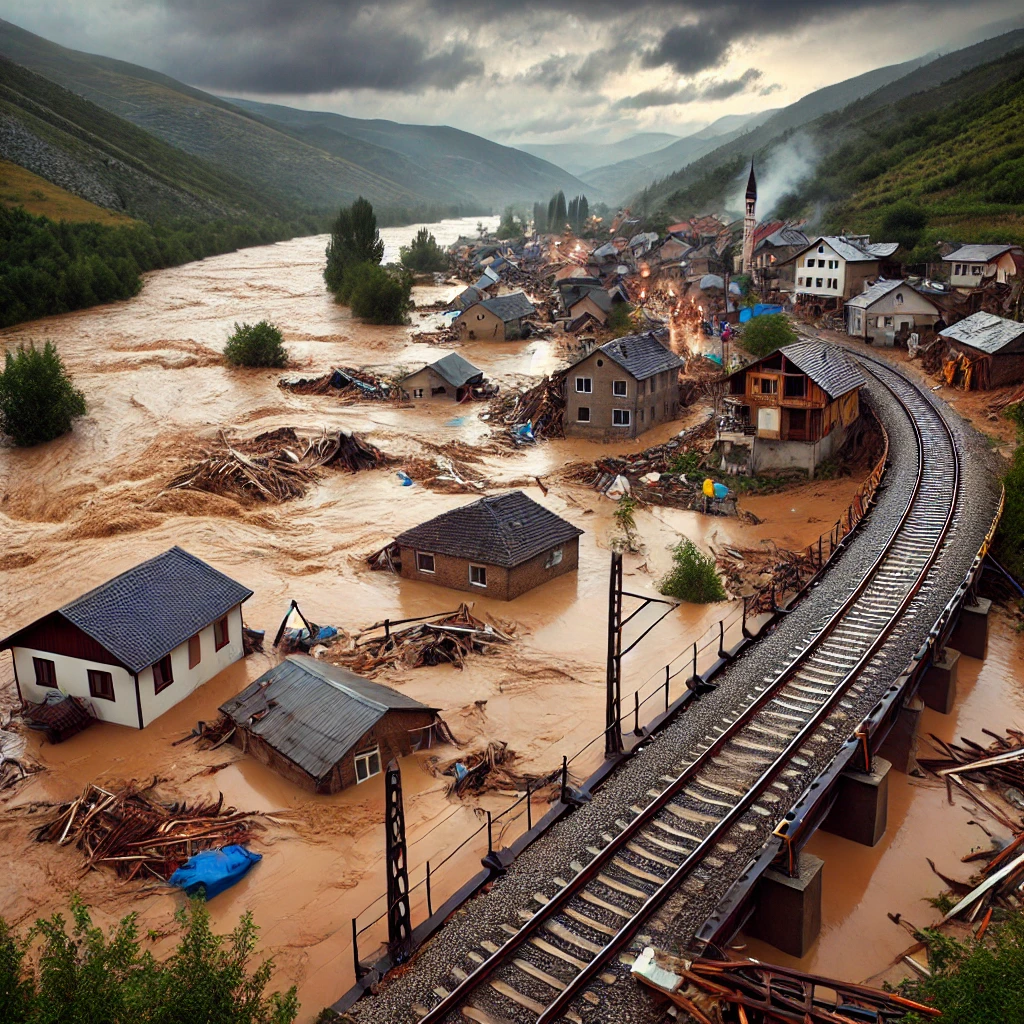October 1, 2024
As Hurricane Helene sweeps across North Carolina, the state is grappling with widespread destruction and an uncertain recovery timeline. Early reports indicate that this Category 4 storm has brought torrential rain, intense winds, and severe flooding, leaving many communities in disarray.
Unprecedented Damage Across the State
Coastal towns have been hit hardest by Hurricane Helene. Areas such as Wilmington, Morehead City, and the Outer Banks have suffered significant damage, with homes and infrastructure either destroyed or severely compromised. Roads are submerged, making travel impossible in many regions. Rescue operations are underway, as thousands have been displaced, seeking shelter from the onslaught.
Helene’s force has been particularly ruthless on power infrastructure. More than 500,000 homes and businesses are without electricity as of this writing, and officials predict it could be days, if not weeks, before full restoration. The strong winds, some reaching over 140 mph, toppled trees and power lines, further complicating relief efforts.
Emergency Response in Action
In response to the crisis, North Carolina’s Governor has declared a state of emergency, mobilizing resources to assist affected residents. Local law enforcement, the National Guard, and first responders are working around the clock to aid in evacuation efforts and distribute essential supplies like food, water, and medical care.
The Federal Emergency Management Agency (FEMA) has already deployed disaster response teams, but the sheer scale of the destruction will require long-term federal and state coordination. Relief organizations, including the American Red Cross, are setting up temporary shelters and organizing volunteer efforts to help those displaced by the storm.
Economic and Environmental Aftermath
The economic toll of Hurricane Helene is expected to be staggering. Early estimates suggest the damage could run into the billions, as businesses, homes, and vital public infrastructure have been severely impacted. Farmers in the region, already struggling from a difficult year, have lost crops due to flooding and wind damage, adding further strain to the state’s agricultural economy.
Beyond the immediate human and economic costs, environmental concerns are emerging as well. Flooding has caused raw sewage to spill into rivers, raising concerns about water contamination. Wildlife habitats, particularly those in coastal regions, have been devastated, potentially causing long-term ecological damage.
A Time for Solidarity and Action
While the full extent of Hurricane Helene’s devastation will take weeks to assess, the response from North Carolina’s communities has been heartening. Neighbor helping neighbor, volunteers pouring into affected areas, and the tireless efforts of emergency responders all demonstrate the resilience and compassion of those facing one of the worst storms in recent memory.
As North Carolina begins to rebuild, the focus will turn to restoring infrastructure and aiding those hardest hit. For those who wish to help, organizations like the Red Cross, local food banks, and community groups are calling for donations and volunteers. Recovery will be a long journey, but with collective action, North Carolina will undoubtedly rise stronger in the face of adversity.
How to Help:
- Donate to the Red Cross or local disaster relief organizations.
- Volunteer with local shelters or food banks.
- Spread awareness about the ongoing needs in North Carolina.



